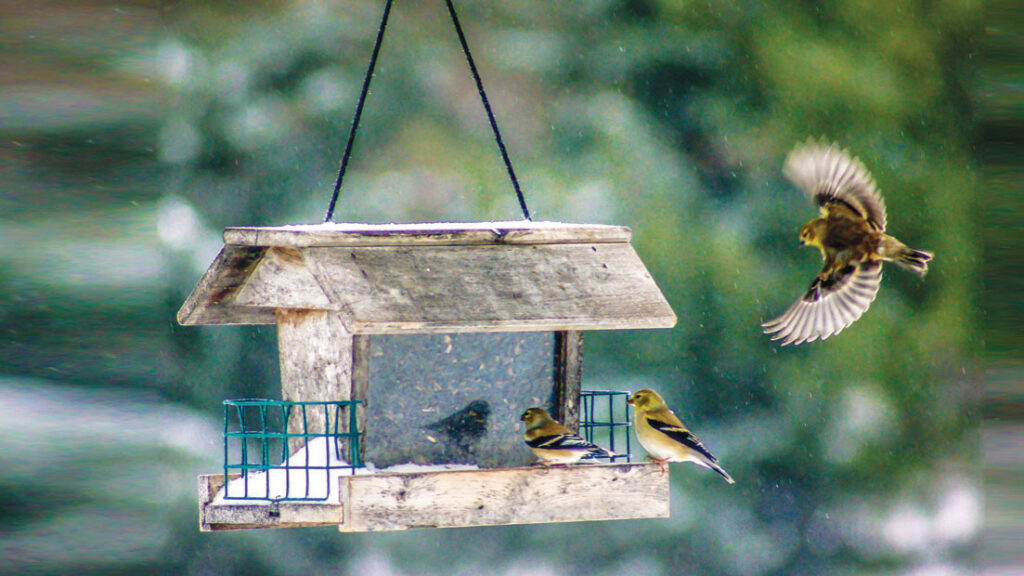
By Will Summers, Washington County Master Gardener
It is not too early to prepare your winter bird feeders and consider expanding your bird buffet this year. First, clean and sanitize all your feeders. This is done by soaking them in warm soapy water and then brushing them thoroughly to remove all caked-on, spoiled food, or any other material you may find from your previous year or that may have accumulated over the summer. Next, make any repairs to hooks, hangers, or suspension lines necessary to make them easier to use as cold weather approaches. You will thank yourself on a freezing morning if everything is working well. Lastly, soak all feeders in a mild disinfectant bleach solution, rinse with clean water, and let them air dry completely before use.
Next comes your selection of the most popular bird foods for the season. Consider any of the following, or possibly consider adding a new item or two if you are not already doing so.
Sunflower Seed – This is perhaps the premiere food for our area’s most excellent combination of desirable birds. Sunflower seeds also do not attract our area’s less desirable English sparrows, starlings, and grackles. Most people use oil-sunflower or “black oil sunflower seed” due to the greater nutrition value and less waste from a smaller shell. Don’t worry about the number of seed hulls that accumulate under the feeders, since they will add valuable nutrients to your lawn during the next growing season.
Niger seed – Or “Niger Thistle Seed”, which is neither from Niger nor is it a thistle. However, the smaller size seed takes birds much longer to eat and is preferred by species such as finches. Please note that the seed must not be fed through the standard open bird feeder due to its smaller size. Thistle seed must be fed through a smaller feeder orifice to prevent waste.
Suet – Feed suet early before frigid weather arrives to familiarize birds to the location well ahead of serious cold weather. Beef suet furnishes the most food value for wintering birds and attracts a variety of downy, hairy, red-bellied, and other woodpeckers you might not regularly attract.
Things to avoid – Avoid “cheap” birdseed, such as those of the “Mixed” varieties that contain large amounts of wheat, oats, and milo (a form of sorghum) that birds do not eat You get less food wasted and fewer desirable birds attracted to your feeders.
Store all bird seeds in sealed containers and away from where mice or other pests can enter. Keep feed dry and moisture away from any seed to prevent spoilage.
Finally, consider your bird feeder’s location. Be careful not to place feeders within direct contact with picture windows, this can create confusion and potential injury from frightening bird collisions. Also, do not place them near birdhouses, or move the birdhouses, because your feeders should still be in use during the beginning of bird breeding, which places further stress on nesting birds and a potential for predation between certain species of birds.
Place birdfeeders where they may get the most available sunlight and yet with as much shelter from harsh winds and precipitation as possible. Birds need water in winter, and it is important to keep an available water source nearby during days above freezing. If it snows, keep deep snow cleared from beneath feeders to give birds access to bare ground.
Predation – All birds are food for other birds and all birds need to eat. Do not be too shocked that a Cooper’s Hawk, red-tail hawk, or some other avian predator takes advantage of your bird feeding station.
Final thought – Bird books, bird feed and feeders make excellent gifts for all ages. Watching birds feed is a learning experience that always lifts the spirits.
If you have any questions or need more information, please contact your local University of Illinois Extension Office, your local Master Gardener and Master Naturalist, or visit your local public library.





